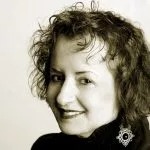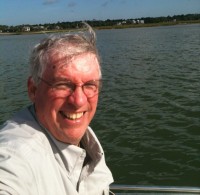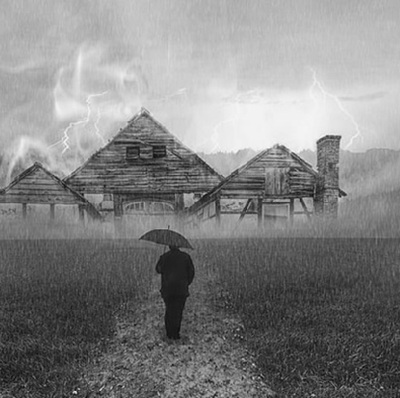Ella Fitzgerald and Ray Brown Get Married
by Susana Case
On a cold day in December, 1947—
and Youngstown, Ohio can be brutally
cold—Ella, who is living on North Avenue,
rides to the city’s Renaissance Revival courthouse
(dozens of indoor white marble pillars),
and, looking deeply into the much-younger,
handsome bassman’s eyes,
the guy who used to play with Dizzy Gillespie,
takes her vows. She wears a black scalloped-
hem dress, is later photographed
smiling, next to a cake. This is between
her appearances at the Merry-Go-Round;
she figures he’s a much better choice
than her drug-dealing first husband.
The couple move to Jazz Central—St. Albans,
Queens, New York.
It doesn’t take long for the marriage to fall apart.
Five years go by and Ella travels to Juarez
for a Mexican divorce.
They call it incompatibility. We can say
it was the performer’s life,
different cities every night.
Still, they continue to perform together.
He, the grits and the gravy, she,
the improvisational scat.
Some think Ella, large, unglamorous
chanteuse, makes bad choices because she’s shy,
keeps too much to herself,
feels at her best when she sings. Look,
we all make bad choices.
And then what we have to do
is shake our heads and push the bulk of ourselves
towards whatever is next. Silvery Ella
knows heartache, and hopes for better.
Even when she loses her legs,
her intonation is perfect. She points out,
it’s not her legs that do the singing.
_____
Jazz Guitar Chronicles 1
by John Stupp
I sat on the right side of the bandstand
so I could hear the bass and drums with my left ear
you couldn’t see me
with the horns in front
trumpet
tenor
trombone
facing the audience
all business
this is what I was given
a field to plow for beauty
until it snowed and snowed and snowed
and the earth was covered
and Pittsburgh was invisible
I met my wife in a nightclub
that night
playing Scrapple from the Apple
and Moose the Mooche
she worked at Joseph Horne’s
and was on her way home
she said later
my solos made no sense
until she started drinking
__________

Susana H. Case is the author of five books of poetry, most recently, Drugstore Blue, new in 2017 from Five Oaks Press, and 4 Rms w Vu from Mayapple Press, as well as four chapbooks. One of her collections, The Scottish Café, from Slapering Hol Press, was re-released in a dual-language English-Polish version, Kawiarnia Szkocka by Opole University Press in Poland. Her poems appear widely in magazines and anthologies. Recent poems can be found in: The Cortland Review, Fourteen Hills, Portland Review, Potomac Review, and Rattle, among others. Dr. Case is a Professor and Program Coordinator at the New York Institute of Technology in New York City.
*

John Stupp’s third poetry collection Pawleys Island was published in 2017 by Finishing Line Press. His manuscript Summer Job won the 2017 Cathy Smith Bowers Poetry Prize and will be published in 2018 by Main Street Rag. He lives near Pittsburgh, Pennsylvania. From 1975-1985 he worked professionally as a mediocre jazz guitarist.














































A great variety and a splendid collection of jazz
Gorgeous poem, Patricia! So much richness in so few words.
To bring from the lips to the ear or the fingers to the ear and into the body so much of life and love is such a fine thing that the poet and the musician have married here that all we can do that is celebrate and hallelujah.
I’m very happy to be part of such a fine collection. I particularly enjoyed Michael Newell’s ‘Vintage Inn ..’ and Lawrence Koumas’s lovely little anecdote.
This collection has too many good poems and poets to acknowledge every poem and every poet worthy of attention. I will, therefore, single out a handful of poets who moved me deeply. The list would include Gannon Daniels, Robert Nisbet, Susana Case, Dan Franch, Patricia Carragon, John Stupp, and Aurora Lewis. If I went back and reread all the poems for a fourth or fifth time, I would likely expand this list considerably. I tip my hat to all the fine artists in this collection, and I thank Joseph Maita for putting all these fine poems together in such an appealing way.
Michael,
I especially like the way the way the two settings, outside and inside the Inn in the first poem, as in these lines:
outside the night is filled
with cigarette smoke lightning
and Lithia Creek swirling over rocks
In the second poem, I hear the music playing in the background of the second poem.
I am pleased that I was able to participate in a poetry writing event which includes the deeply felt emotions of jazz music and love and its individual expressions in form and format. I will read these with great pleasure. This idea to showcase it on Valentines date was terrific.